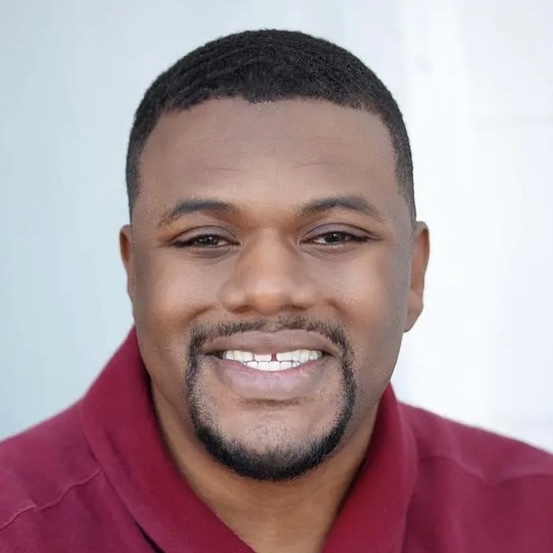“We don’t rise to the level of our goals, we fall to the level of our systems” – James Clear. A lot of us believe that once you set the goals, you’re good to go, but if you don’t set your systems properly and follow them. You’ll find yourself not making progress sooner than you think.
View Full Transcript
Episode Transcript
[00:00:00] You may not have the right systems in place to be successful. I'm gonna tell you why after.
[00:00:29] Hey, everyone. Welcome to Shifts and Ladders. It's Ryan Robinson. Hope you're doing well.
[00:00:33] There we go.
[00:00:35] Hope you're doing well. If you haven't yet, share this YouTube or podcast with your friends, your family. We're on YouTube, we're on Spotify, we're on Apple Podcast, basically, wherever you can find a podcast. So share it with you, because I think today's lesson is going to be really helpful to you. So last time we were talking about discipline and how God utilizes discipline in order to get us from point A to point B. And I think that is an extremely important thing to realize, but also we have to recognize as well that systems are in place for the discipline to take root. I'm going to say that again. Systems are in place for disciplined to take root.
[00:01:24] Give an example here. And we're going to utilize the Bible for this, okay? In Genesis, chapter one, Bible says, in the beginning, God created the heavens and the earth and all the things. He created everything. And there is a way by which God created things. So when he created the heavens and the heavens and then the earth, and then he created the world because it was out form and void and he formed it. And then he had water, and then there was land, and then there was water, then there was the things in the water, and then there were the creepy crawly things on the earth. And then after the creepy crawly things, then he makes animals and then he makes us. I really blew past this really fast. But if you are really interested, go to Genesis chapter one and Genesis chapter to really get all the details as to the order, if you're interested in it. But the last thing that God made was humans, okay? And it was the first time that it says God created, took from the dust of the earth, formed it, blew into it and created something. That was the first time God got his hands dirty.
[00:02:44] That'll preach. And he blew into it the. The ruha or his spirit, and it became a living being. And then that person, that being was named Adam. And then Eve was pulled from Adam, so on and so forth, okay? But what God did was he actually created a system. I don't think once God created the earth, he had to recreate the earth again.
[00:03:12] I don't see that happening. I don't see him having to call and create mountains and make water again and make certain animals again and make us again. He actually created the most efficient system in ever, wherever there's an ever he did it. So what God typically does is he creates systems that create for themselves. Okay? And we'll give another example. When God created the plants and he created us, everything that is needed for that thing to continue to live is inside the fruit, and it is called a seed. A seed is designed to replicate after its own kind.
[00:04:06] Okay? So what God did was there's fruit, there's things that are going to sustain us. But inside, like if you're eating old school. Old school. If you're eating a box of cereal and you have a prize in the middle, there's something in it that actually keeps you going back to get some more cereal. You know, holler back at me. If you're in the 80s where you had those. The cereal box prizes in it, and it just kept making you want to go back to the grocery store after you finished a box of cereal in like two days and you were going to get some more. So essentially what God has done is that he basically says every time you take partake in the fruit, there is actually. You call it a surprise, but there's actually the makeup of the same thing you just ate in this little thing called a seed. And if you plant it, you water, you take care of it, it will continue to recreate and replicate after itself. So if you want to have more than one apple, plant one or two seeds and you will end up having an orchard.
[00:05:20] Same thing with human beings. Seed is in man, woman, has egg, procreation. Y'all know the business. It is designed to replicate itself. So God does not have to get involved in the sense that he has to establish a new process.
[00:05:40] He's already made it, he's done it once, and he doesn't have to do it again. Okay, Now, I believe that processes have a. Because we are made in the image and likeness of God, we have an ability to create as he did, but not to the extent as he did. Right, because he's God. But there are habits, there are characteristics that we can learn from Him. Okay, and one of those is being how do we create and design systems? Because at the end of the day, we all have a system. We just don't call it that. Okay, when you wake up in the morning, what do you do? You might work out in the morning. Once you work out, you shower. Once you shower, you brush your teeth, wash your face, get your clothes ready, then you get your kids ready, then you eat breakfast, then you take the kids to school, and then you go to work, and then you do. There's A whole system that is established whether we want to do it or not.
[00:06:46] The key to having great systems is having massive intention. I'm going to say that again.
[00:06:55] I'm like, somebody's here. I'm looking around. The key to having amazing systems is having massive intention behind them.
[00:07:04] It's so critical because if you don't have any intention behind your system, you will create a system that you don't like.
[00:07:12] And that is a bad habit. There are a couple books, and I'm pulling this from the Bible, clearly, because that is. I feel like that is the root of it. But there are some books that are famous in culture called. Actually, I'm going to name two. It's the Power of Habit by Charles Duhigg. This is probably in the early 2000s, and most recently Atomic Habits by James Clear. And these two individuals take on the research of what it looked like to create replicate established systems and established habits, which in this case, habits are things that you do not have to spend time on thinking about. You don't use BR brain power to do it. So essentially, what God did when he made a system is he made the Earth have a habit.
[00:08:04] He allowed the Earth to have a habit of recreating.
[00:08:07] And with us, with others, we have habits that are either serving us or not serving us. It's up to you to decide if the outcome is something that you want. Okay, There's a quote in Atomic Habits that says this. We don't rise to the level of our goals. I'll make sure I got this right.
[00:08:32] We don't rise. There we go. That was right. We don't rise to the level of our goals, but we fall to the level of our systems. I'm gonna say that again. We don't rise to the level of our goals, but we fall to the level of our system. Okay? The thing is, when we have goals, they trigger emotion in us. They get us going, they get us excited, all those kinds of things. And in fact, your goal might be further away than you actually intend to. Say you want to lose £100. £100 to lose is a big number, right? Not saying it's not impossible because we've seen many people do it, but what was it that they did that got them from £300 to £200 in seven months? They had a system. It's so it can be disheartening to just say, I'm gonna jump from 0 to 100 real quick.
[00:09:35] It can be disheartening because if you're not even close, if you're starting at 1 and you compare 1 to 100, you're like, dad, got it? Is it even worth it?
[00:09:44] But what we have to do is take these incremental steps and build a system that we can trust and allow the things that happen along the way to train us and teach us what we can do, what we should do, what we should tweak, and what we should eliminate.
[00:10:05] I truly believe that discipline without a process is just futile.
[00:10:13] It doesn't have any direction. It's misguided zeal to utilize the Apostle Paul's words, when it comes to being on fire for God, sometimes we just aren't guided. Sometimes we just don't have a space for it. We don't have a particular track for us to run. If you could run fast, if you do run fast and you just run anywhere and you don't run on a track that has a direction, a beginning and an end. You are just running around with no intention.
[00:10:47] But that is what discipline does with a process or a system. Excuse me.
[00:10:56] This is another thing, too. I've always found when we build processes, systems and all those kinds of things, we design them like a machine. This is what A, A goes to B, B goes to C, C goes to D, and it equals, you know, whatever your outcome is, right?
[00:11:19] So we design it in a way that we're like, all right, this is going to be perfect.
[00:11:27] And you know what? Ideally, designing a process should be perfect. Why? It has no feelings.
[00:11:34] It's not a person.
[00:11:37] Processes don't fail. We can always fix those.
[00:11:42] But generally people fail the processes because we don't know from day to day how us as people are going to respond.
[00:11:53] Some days you wake up late, you're not going to get your workout, and some days your kids wake up early, they might throw your whole day off, or they might have a little temper tantrum. We know how kids are. They're just as unpredictable.
[00:12:08] But whatever happens, people usually fail the processes. So what do we have to build? We have to build this thing called adaptability and adjust.
[00:12:23] This is, if anything, probably the. The most important thing to do. Because in the lane of discipline, in the lane of discipline, you're able to stay on course, but depending on how rigid you are, depends on how adaptable you can be. Because essentially, at one point in time, if you're training, if we go back to our example, for the person who needs to lose 100 pounds or who is looking to lose 100 pounds, what got you to 50 pounds actually won't get you to 75 pounds. You might have to make some adjustments.
[00:13:05] There's this thing in fitness that many of us know is that we plateau.
[00:13:09] We plateau if we have been doing something over a period of time consistently and the body adjusts. So what do we have to do? We have to change the season.
[00:13:21] We have to add more weight. We have to change the reps. We have to change the type of workout. We may have to change the type of diet. We may have to start walking 10,000 steps or 15,000 steps. Whatever it is, we're going to have to make some kind of adjustment. So at the end of the day, yes, we can continue to design processes and systems that work.
[00:13:46] We can continue to do that, and we have to take feedback from that system, feedback from that person, feedback from that experience to make adjustments so that we can go further along and be able to grow.
[00:14:07] I truly believe that God built these systems and built us in a system that, honestly, he only has to touch things once.
[00:14:16] When Jesus died on the cross, he died once. He's like, I'm not. He's. I don't waste anything.
[00:14:26] A good friend of mine says, nothing is wasted.
[00:14:30] The Bible says he'll give you beauty for ashes.
[00:14:35] You know what I'm saying? Like, there are things that we don't typically associate with success, with comfort, that God says, oh, I can use that.
[00:14:45] I can use that heartbreak to build up strength in you and resilience so that when you get to a point of where you need to be, that resilience will serve you in a way that you never intended those things, y'all. God never, never wastes.
[00:15:08] And I truly believe that in discipline, systems are critical for having a place for them.
[00:15:19] They're critical for containing discipline in a specific and determined and intentional direction.
[00:15:29] Because once we do that, you have an aim, you have a focus.
[00:15:34] You'll start to see the things you need. And I don't have enough time to talk about adaptability and making adjustments, but if you live long enough, you've had to make some adjustments.
[00:15:49] I mean, the list can go on, but you've had to make adjustments in every place.
[00:15:54] Your discipline serves you in one way, but your adaptability serves you in another way. And we'll talk about that in the next podcast. And again, I still have Bible for it, y'all, because I truly believe that the Bible speaks to some of the very things that one, we struggle in, but also gives us the blueprint for design on how to live a better, fulfilling life. All right, so if you haven't yet, like, I said before. Subscribe like, share, do what you need to do. But until the next time, we will catch you in the next podcast. Peace.



